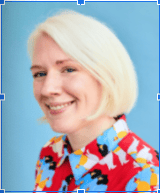Log in or create a free Rosenverse account to watch this video.
Log in Create free account100s of community videos are available to free members. Conference talks are generally available to Gold members.
Summary
How do you choose the right workplace for maximum impact? Our panelists will share their experiences in finding roles that align with their values and impact goals. We will explore the nuances of assessing company commitments and project potential. Whether you’re actively job searching or planning ahead, this discussion will help you navigate the evolving field of Climate tech. Panelists: Max Gadney, Joshua Stehr, Hannah Wickes Moderator: Andrea Petrucci
Key Insights
-
•
UX professionals should treat job interviews as two-way conversations, assessing the company’s theory of change and honesty.
-
•
Evaluating a company’s financial health involves understanding their funding stage, runway, and timing of next funding rounds.
-
•
A hard boundary for many in climate roles is avoiding companies with fossil fuel funding or strong ties to fossil fuel interests.
-
•
Working in early-stage climate startups often requires being a generalist, while scale-ups demand more specialized skills.
-
•
Big corporates can offer valuable skills and experience in complex systems and B2B contexts, even if their impact is limited.
-
•
Company leadership and board members’ backgrounds are key indicators of a climate company's ethical direction and potential impact.
-
•
Many climate jobs operate in a ‘move fast and break things’ culture, causing burnout issues even in mission-driven roles.
-
•
Personal connection and lived experiences with climate issues can be powerful motivators in choosing where to focus career efforts.
-
•
Impact is subjective and can range from tangible, visible results to long-term systemic change that is harder to perceive.
-
•
Combining paid roles with pro bono or portfolio work can help balance financial needs with the desire for mission-driven impact.
Notable Quotes
"I always see interviews as a two-way conversation where I’m interviewing them as much as they’re interviewing me."
"What is your theory of change? How are you actually going to achieve the outcome you’re aiming for?"
"If you think fossil fuel companies are going to help us solve this, then we probably have a very different idea of how this system works."
"You have to be serious people making this business work, not just doing conferences and performative acts."
"Sometimes you need to view your career like an investor, where you invest your time for the kind of impact you want."
"Check the people on the board and the advisors because that tells you a lot about the company’s true values."
"It’s really important to understand your own mental bandwidth and not take on too much even if the project excites you."
"Not all climate jobs have digital outputs, so don’t waste your time chasing digital roles in fields like green concrete."
"You can look at a company’s impact reports and funding sources to sniff out if something feels too good to be true."
"Go beyond climate, look at the personal systems you understand or want to solve to find your career motivation."
Or choose a question:
















More Videos

"Timely interactions that log users out without saving progress cause abandonment, especially for people with disabilities."
Sam ProulxOnline Shopping: Designing an Accessible Experience
June 7, 2023

"We want to build consultants who can solve problems across a variety of projects and clients."
Ignacio MartinezFair and Effective Designer Evaluation
September 25, 2024

"Embedding designers gave them deep expertise but siloed goals prevented consistent cross-product experiences."
Sarah Kinkade Mariana Ortiz-ReyesDesign Management Models in the Face of Transformation
June 8, 2022

"Belonging means understanding the shape, size, and cause of your community and your unique purpose in it."
Daniel GloydWarming the User Experience: Lessons from America's first and most radical human-centered designers
May 9, 2024

"AI systems can present speculative connections as established facts, so confidence ratings are critical."
Patrick BoehlerFishing for Real Needs: Reimagining Journalism Needs with AI
June 10, 2025

"AI-moderated interviews will help drill down on depth without sacrificing scalability or requiring scheduling moderators."
Andy Barraclough Betsy NelsonFrom Costly Complexity to Efficient Insights: Why UX Teams Are Switching To Voxpopme
September 23, 2024

"Technology moves faster than policymaking — that’s the pacing problem we need to address."
Alexandra SchmidtWhy Ethics Can't Save Tech
November 18, 2022

"The greatest sin of the designer is to say I have the answers and no one else is allowed to have them."
Louis RosenfeldDiscussion: What Operations can teach DesignOps
November 6, 2017

"Design systems are the language of implementation; they allow us to communicate ideas in a common format and process."
Mitchell BernsteinOrganizing Chaos: How IBM is Defining Design Systems with Sketch for an Ever-Changing AI Landscape
September 29, 2021



















